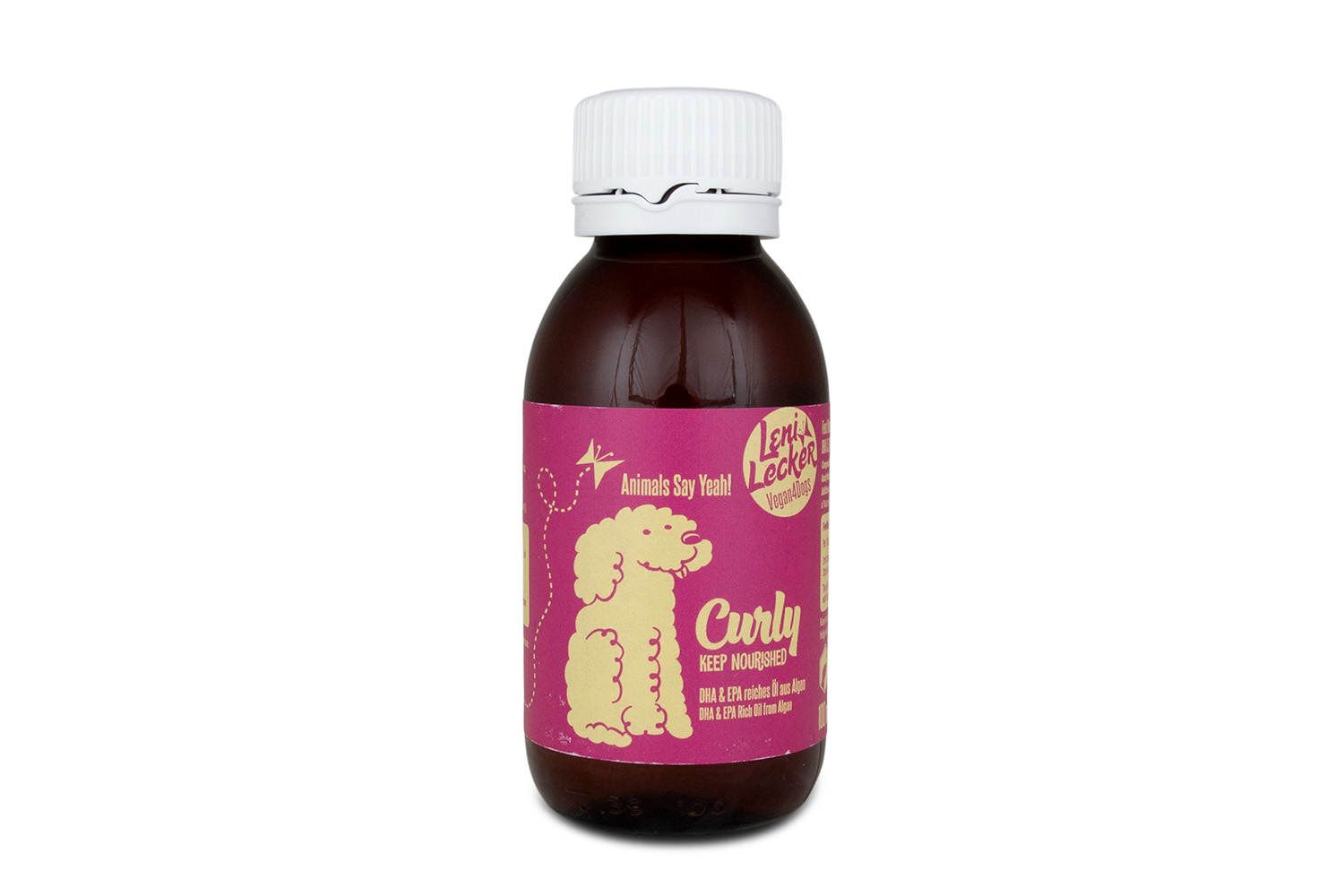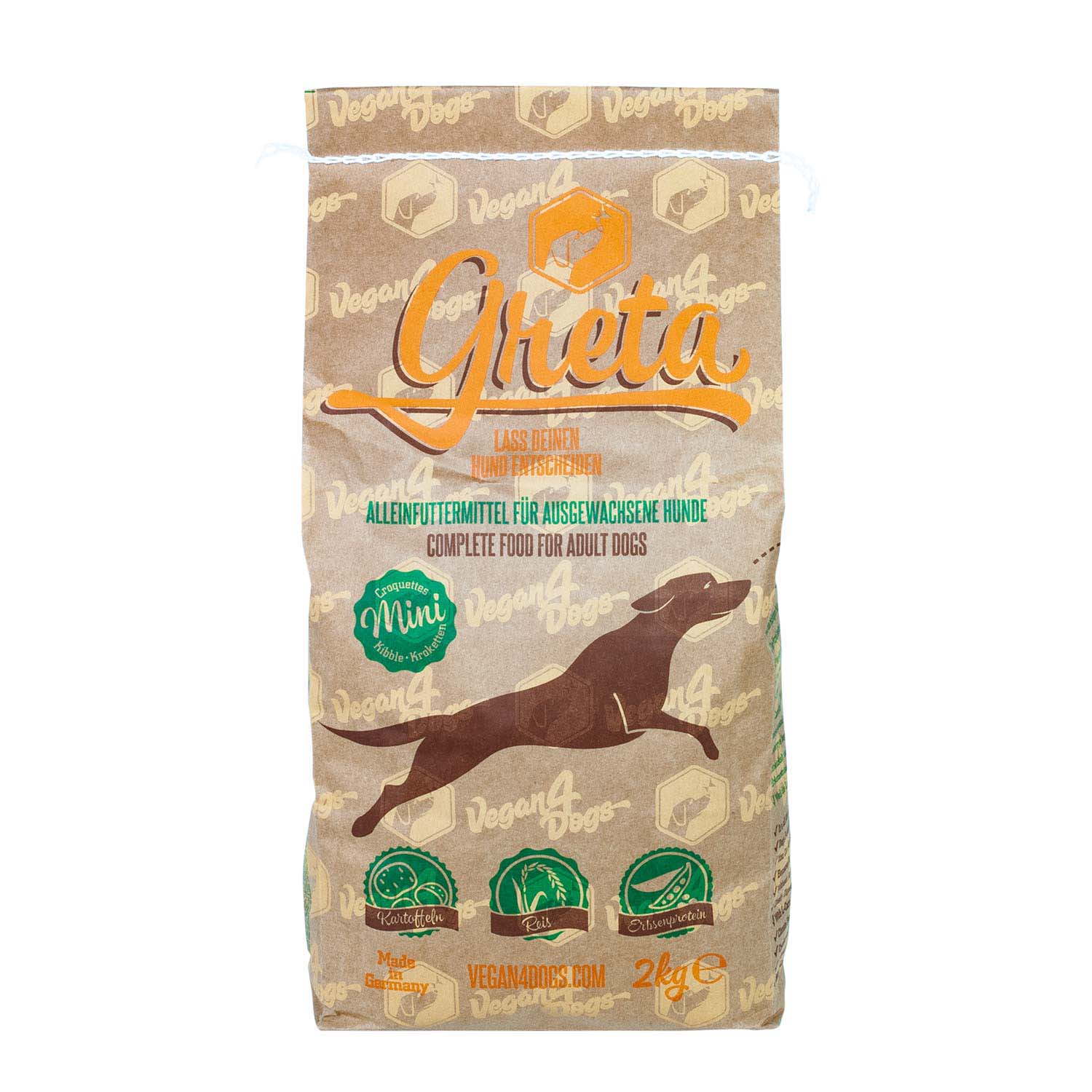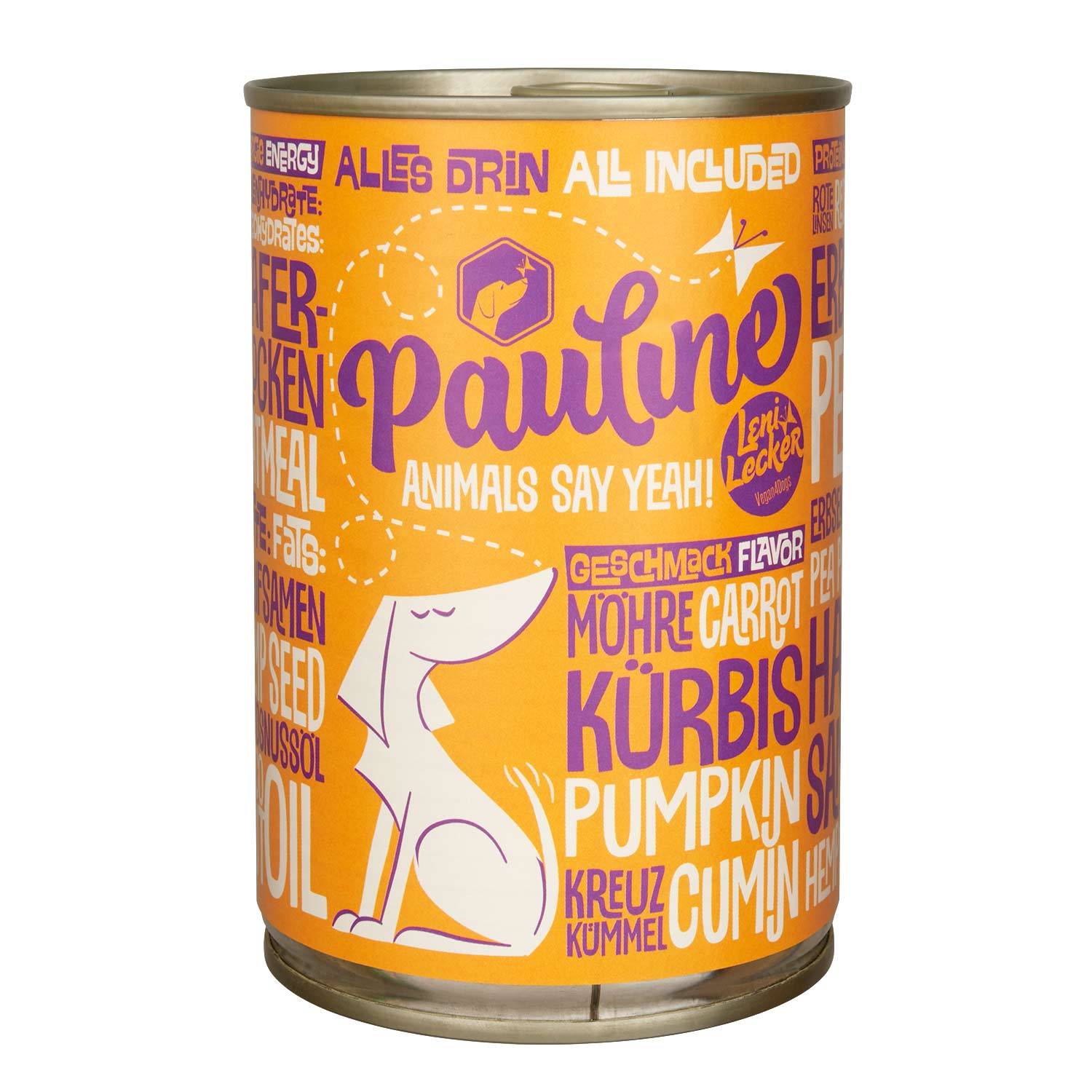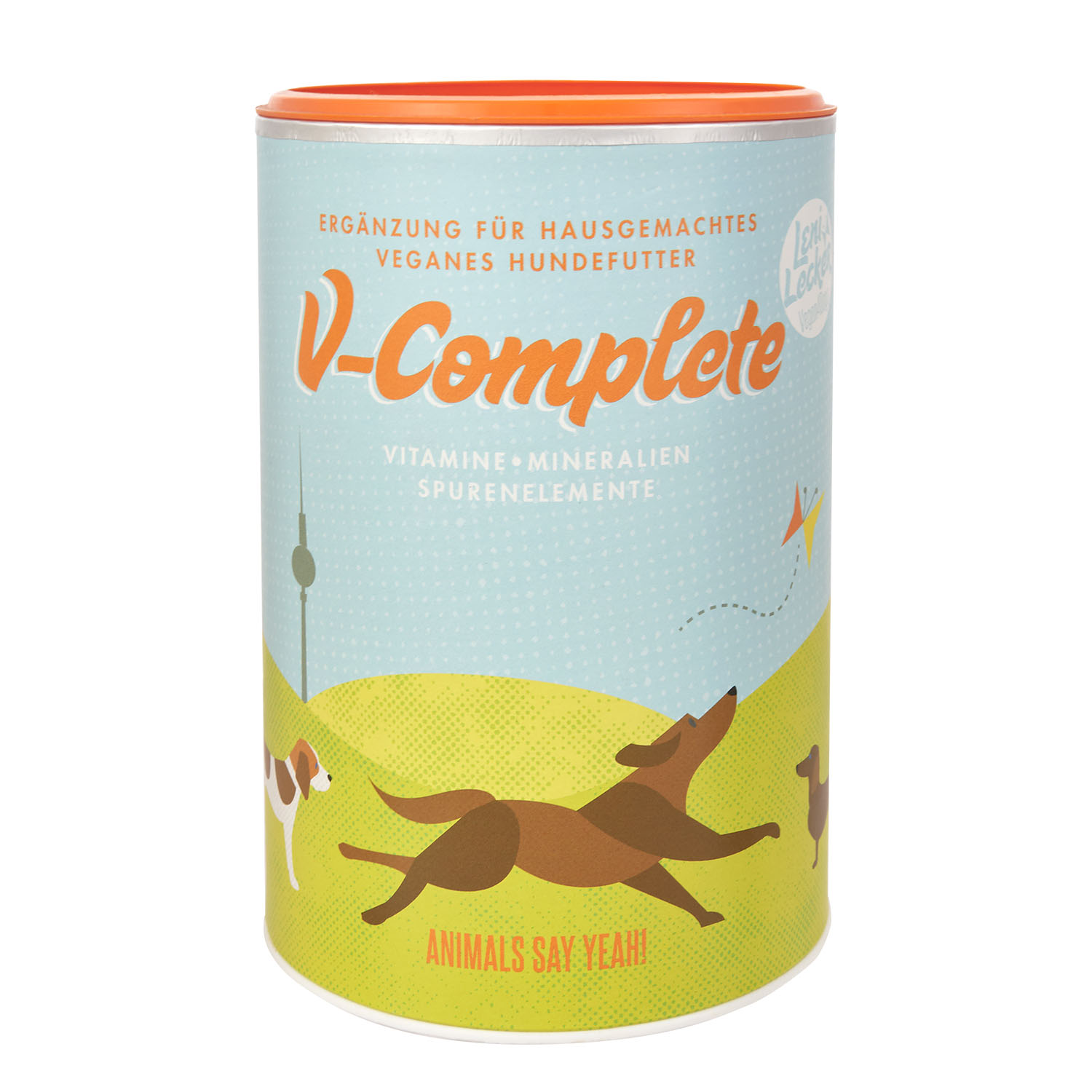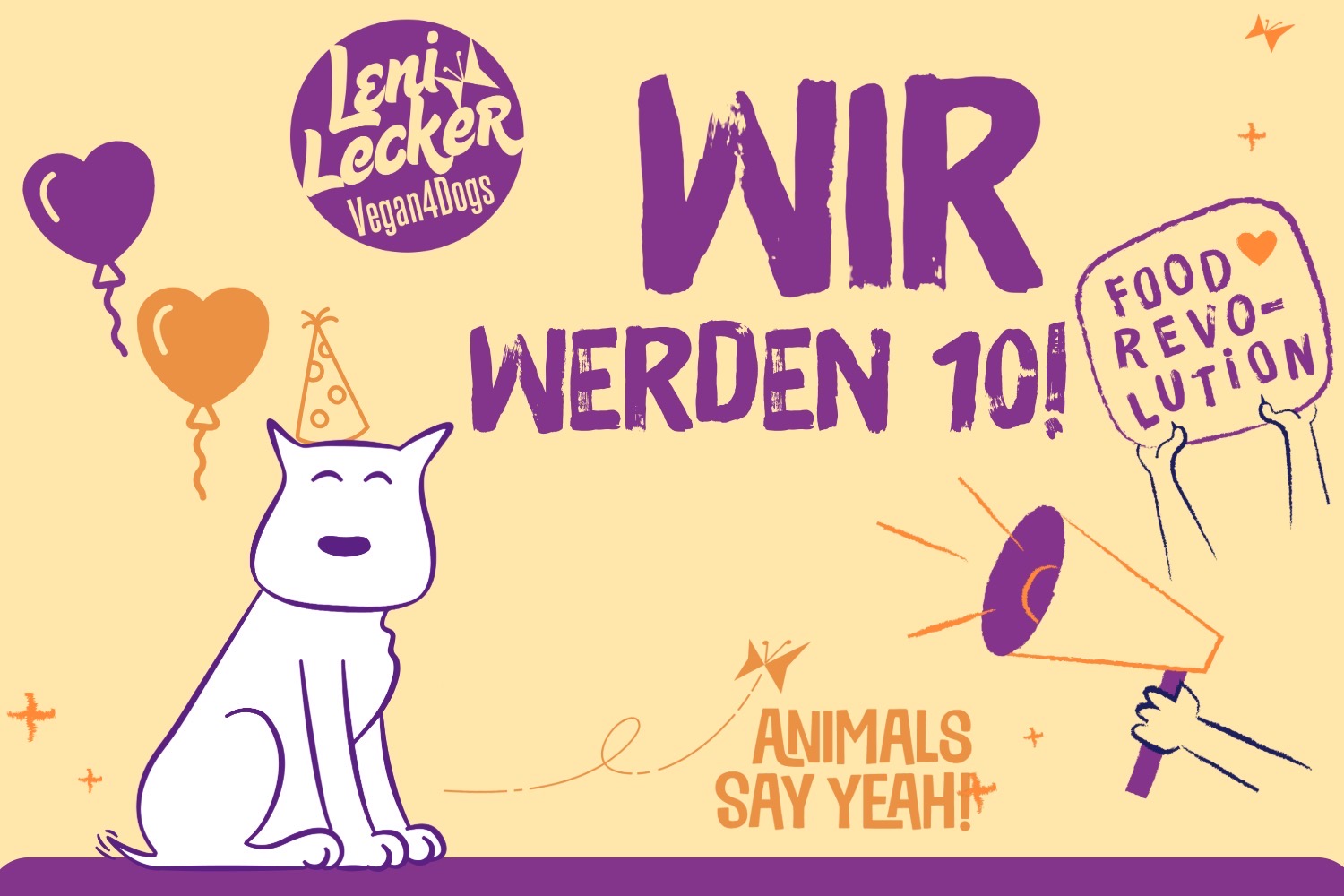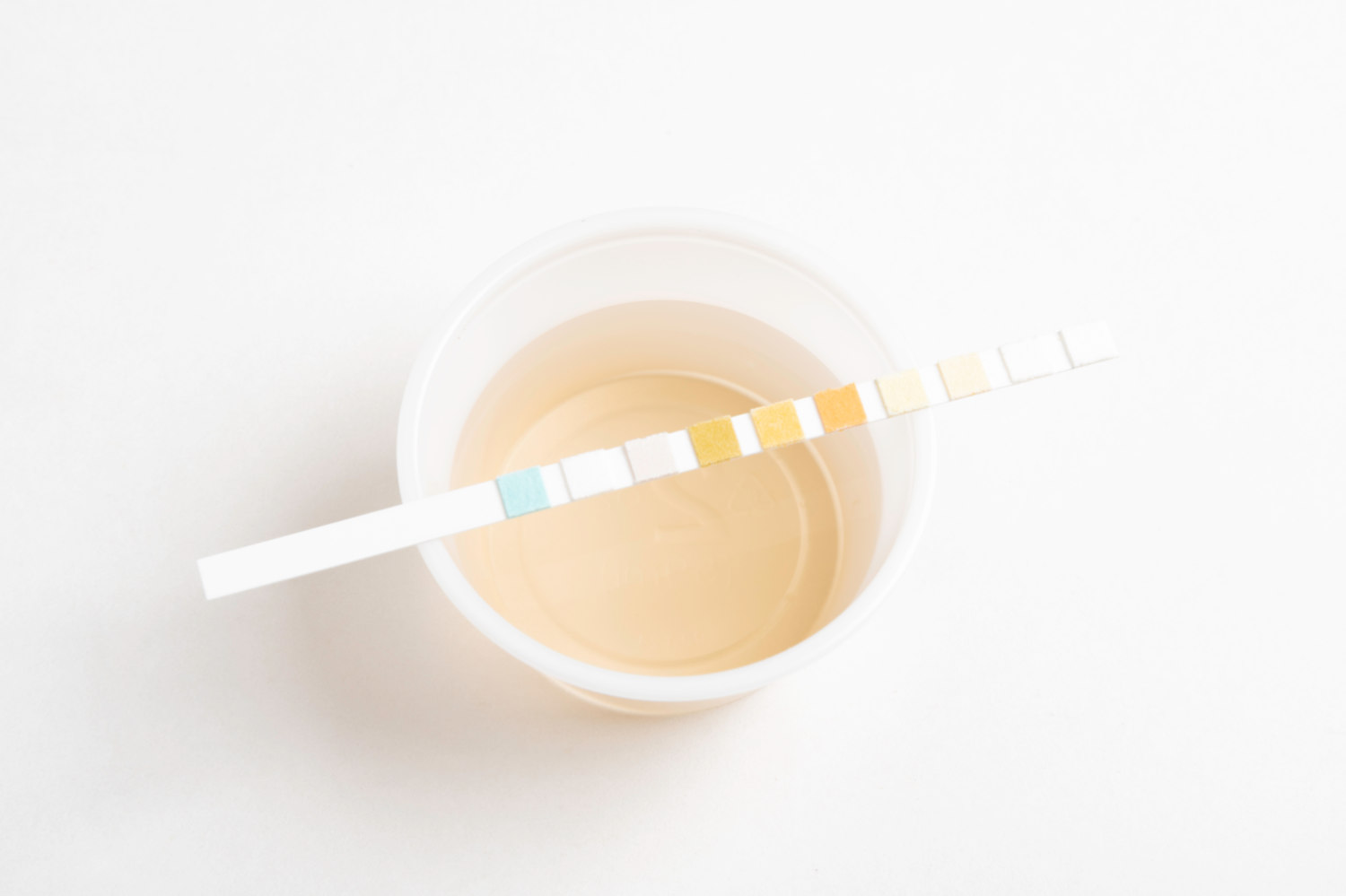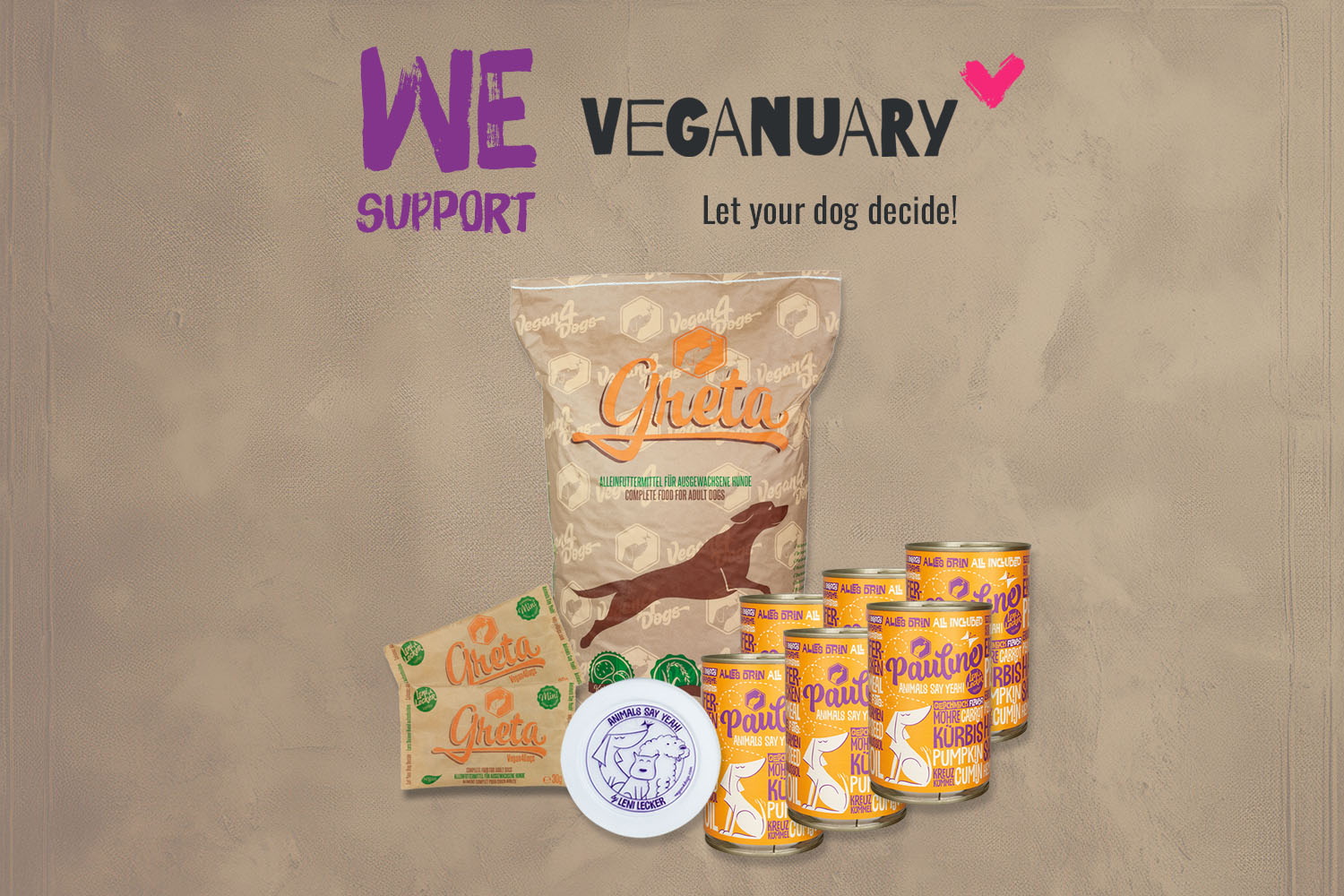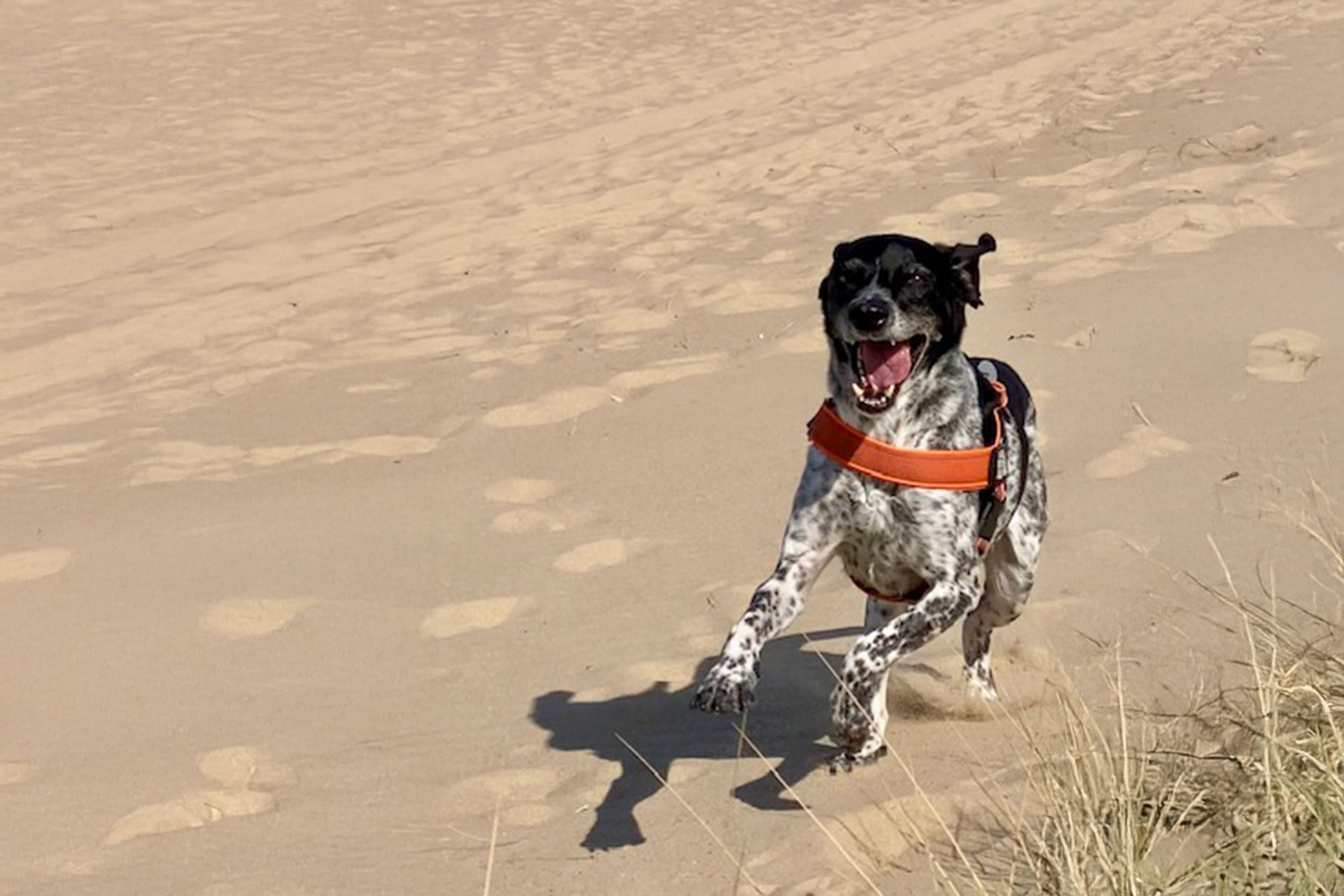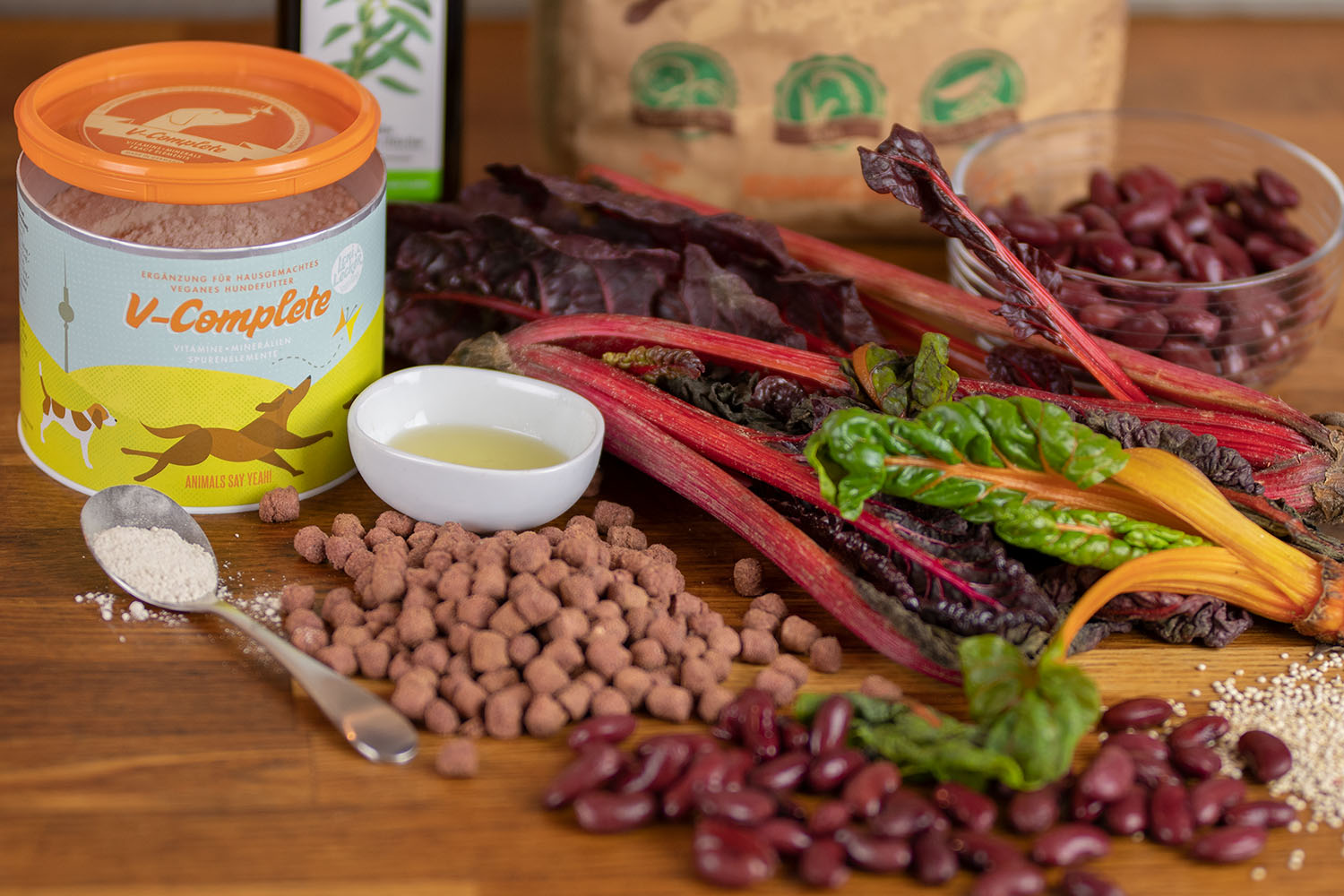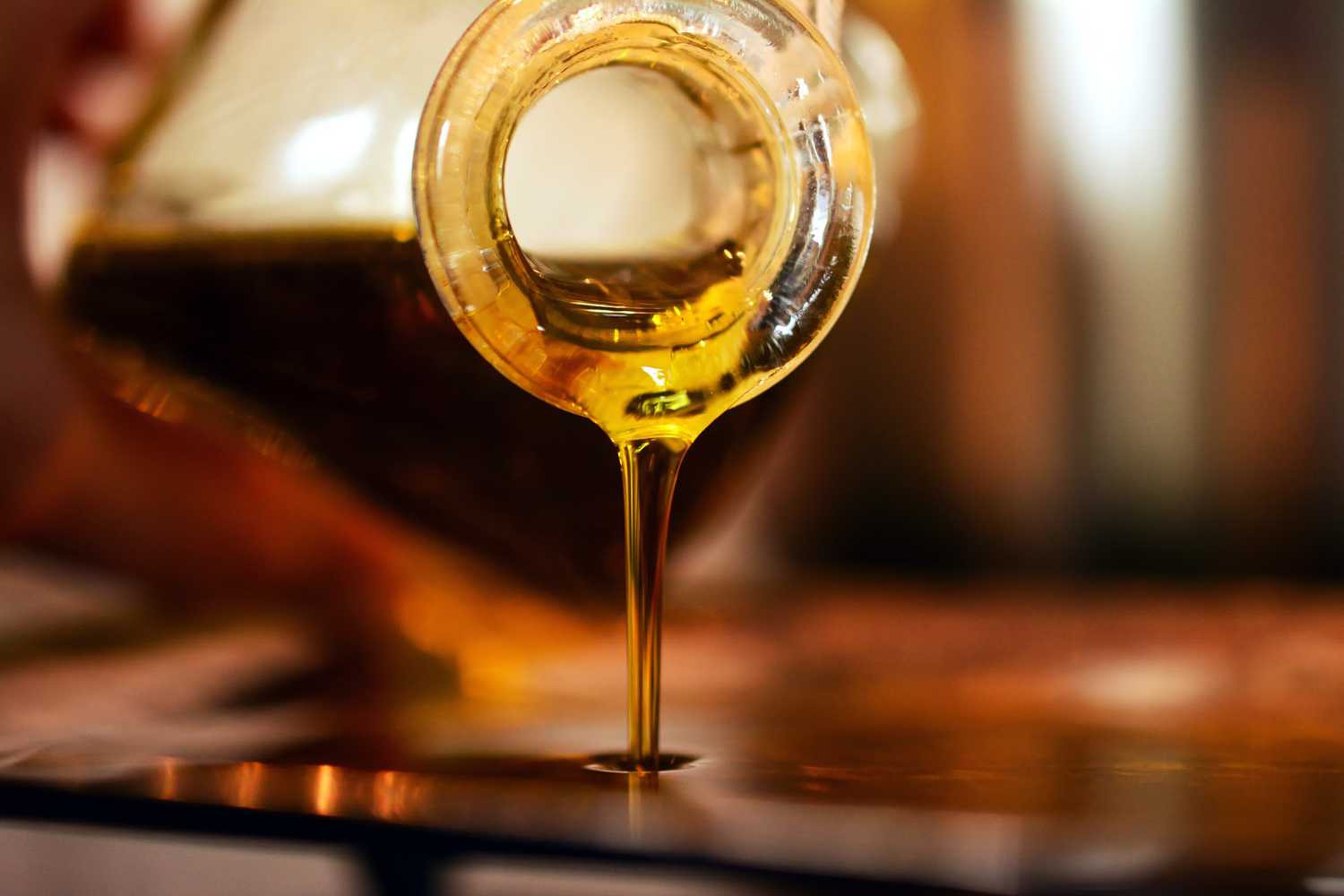
Omega Fatty Acids for Dogs
The importance of a balanced diet for dogs is undeniable, and fats play a crucial role in this. Next to their function as a source of energy, they are also providers of essential fatty acids and fat-soluble vitamins.
In this article, we explore the variety of fats in dog nutrition, in particular the differences between saturated and unsaturated fatty acids and the importance of omega-3, omega-6 and omega-9 fatty acids. We also have a look at the best vegan options for enriching our dogs' diets. Let's dive into the world of fats and discover how they can improve the health and well-being of our dogs.
Table of contents
Fats in Dog Nutrition
Differences of Saturated and Unsaturated Fatty Acids
Differences of Essential and Non-Essential Fatty Acids
Differences of Omega-3, Omega-6 and Omega-9
Why you should prioritise Unsaturated Fatty Acids in your Dog's Diet
Omega-3 Fatty Acids
Omega-3 Deficiency in Dogs
Omega-6 Fatty Acids
Ratio of Omega-6 to Omega-3
Omega-9 Fatty Acids
Quality & Sustainability of Fats
Summarys
Resources
Fats in Dog Nutrition
If you want to feed your dog a diet that meets his needs, a balanced diet is very important. The diet should be based on different food sources, consisting mainly of carbohydrates, proteins, vegetables and fruit as well as fats.
Fats play an important role for dogs as a source of energy and essential fatty acids. They are also the key to absorbing fat-soluble vitamins such as A, D, E and K.
Unsaturated omega-3, 6 and 9 fatty acids in particular are considered essential and should be integrated into a balanced diet. In this blog post, we look at the different variants and suitable vegan options.
Differences of Saturated and Unsaturated Fatty Acids
Saturated and unsaturated fatty acids are two types of fatty acids that are found in food and have different effects on health.
Saturated fatty acids are primarily of animal origin and are found in foods such as meat and dairy products. They are solid at room temperature and are often labelled as ‘bad’ fats, as high consumption is associated with an increased risk of cardiovascular disease2,3.
Unsaturated fatty acids, on the other hand, are mainly of plant origin and are found in foods such as nuts, seeds, vegetable oils and fatty fish. They are normally liquid at room temperature. Unsaturated fatty acids are often referred to as ‘good’ fats because they can help to lower cholesterol levels and reduce the risk of cardiovascular disease2,3.
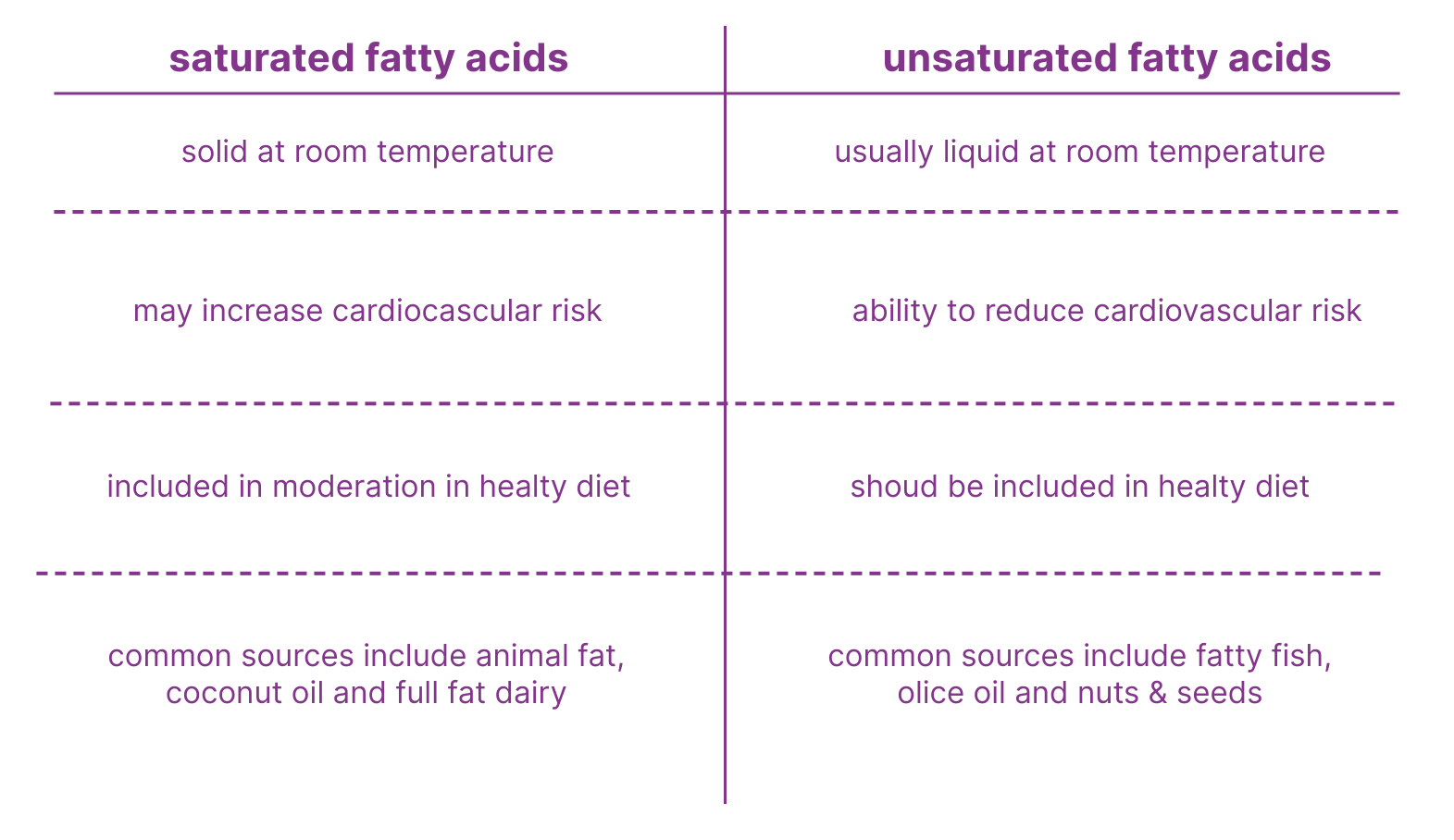
Differences of Essential and Non-Essential Fatty Acids
It is not only in dog nutrition that we often talk about saturated and unsaturated fatty acids and distinguish between fatty acids that are essential for the diet and should definitely be included in it, and those that are not essential and are only supplemented if necessary or are already sufficiently found in the diet.
Differences of Omega-3, Omega-6 and Omega-9
Let's go back to chemistry class for a moment: The terms omega-3, omega-6 and omega-9 refer to the position of the last double bond in the carbon chain of the fatty acid. Fatty acids consist of a long carbon chain with a carboxyl group (COOH) at one end and a methyl group (CH3) at the other.
Counting from the methyl group, omega-3 fatty acids have their last double bond on the third carbon atom, omega-6 fatty acids on the sixth carbon atom and omega-9 fatty acids on the ninth carbon atom.
These variations in the position of the double bond affect the functions and properties of the fatty acids in the body and their health effects.
Omega-3 and omega-6 fatty acids are considered essential fatty acids because the body cannot produce them itself and they must therefore be provided by food. Omega-9 fatty acids are not essential for the body as it can produce them itself to a limited extent.
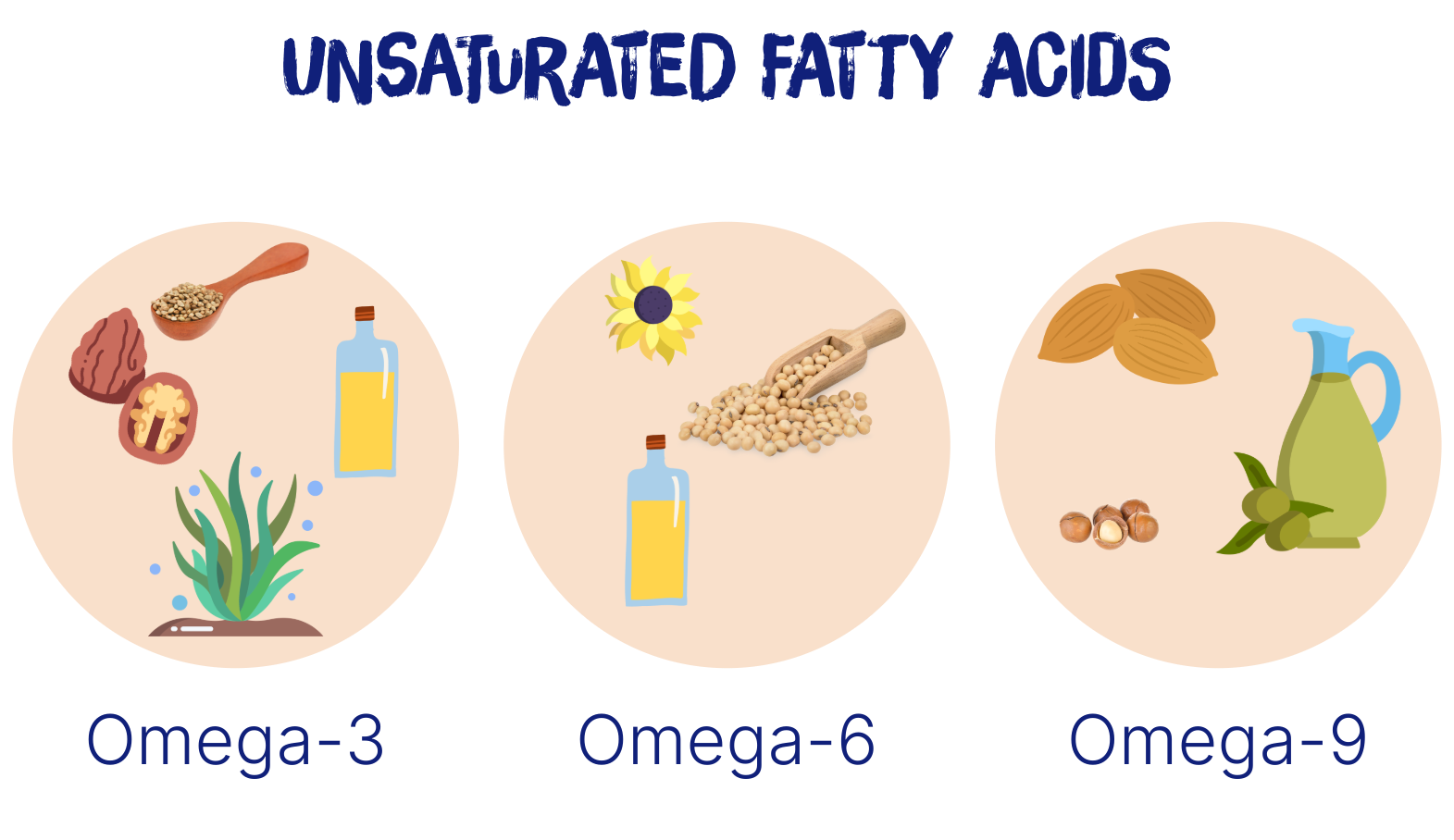
Which Omega Fatty Acids are essential for a Dog's Diet?
As part of a balanced vegan or meat-based dog diet, you should pay attention to the addition of certain oils to supplement essential fatty acids. Dogs cannot produce sufficient quantities of these themselves. Non-essential fatty acids, on the other hand, can be produced by dogs themselves, but it makes sense to add them in certain situations (such as inflammation, joint or skin diseases).
Essential fatty acids that mature dogs need to live are the omega-6 fatty acid linoleic acid and the omega-3 fatty acids alpha-linolenic acid, eicosapentaenoic acid (EPA) and docosahexaenoic acid (DHA).
It is often discussed whether vegetable oils may not be as easily absorbed as animal derived oils. However, there are controversial energy sources in terms of their environmental balance, such as salmon and krill oil, which while being rich in omega-3 fatty acids, have a huge ecological footprint and do not meet our ethical values.
Vegetable oils, such as linseed oil or hemp oil, usually contain a chemical precursor to EPA and DHA: e.g. alpha-linolenic acid (ALA). This is extended in the metabolism with the help of enzymes in order to form the important, essential fatty acids eicosapentaenoic acid (EPA) and docosahexaenoic acid (DHA). It is often claimed that dogs cannot convert these in vegetable oils, but this has not been clearly proven1. In algae oil it is already present in the corresponding structures EPA and DHA.
Omega Fatty Acids for Puppies
In addition to the fatty acids mentioned so far, the omega-6 fatty acid arachidonic acid plays an important role in conventional or vegan puppy nutrition, which becomes a non-essential fatty acid after the growth phase. However, during the growth phase it does have a crucial role in the growth and for the development of tissues, including the nervous system, skin and coat. After the growth phase, the nutritional needs are no longer increased and can be covered by the other omega fatty acids.
Check out our blog article on vegan puppy nutrition to find out which nutrients are also important during this phase.
Why you should prioritise Unsaturated Fatty Acids in your Dog's Diet
As we already know, saturated fatty acids are often of animal origin and are particularly common in conventional diets. They are considered ‘bad’ fatty acids and have a negative effect on the cardiovascular system in both humans and animals.
Unsaturated fatty acids can help to reduce cardiovascular disease; they are predominantly of plant origin and are found in vegan diets.
It therefore seems sensible to feed predominantly unsaturated fatty acids and to maintain the omega-6 to 3 ratio. If, as in conventional meat and fish-based diets, more saturated omega-3 fatty acids are fed, the ratio cannot be maintained and can also lead to a pro-inflammatory reaction.
Omega-3 Fatty Acid
In the omega-3 fatty acids we find the key fatty acid alpha-linolenic acid, which in vegetable oils represents the chemical precursor to the essential fatty acids eicosapentaenoic acid (EPA) and docosahexaenoic acid (DHA). In animal derived oils and in algae oil, like our Curly, EPA and DHA are already present and are directly available. With regard to the conversion rate of vegetable oils to DHA and EPA, there is still no conclusive study, some assume a factor of 5%1, while others have found no difference compared to animal sources1.
Effect of Omega-3 Fatty Acids
EPA and DHA contribute to metabolic regeneration and have anti-inflammatory properties in particular, leading to significant health benefits in dog nutrition.
They can help protect the cardiovascular systemsources2,3 by reducing inflammationsources2,3 and lowering blood pressuresources2,3. They can also help reduce the risk of cardiac arrhythmiassources2,3 and increase the elasticity of blood vessels2,3.
Due to their anti-inflammatory properties, they can help to reduce chronic inflammation in the body. This can lead to improvements in the musculoskeletal system, joints, intestinal disorders and skin and coat problems.
DHA is an important component of cell membranes in the brain and plays a crucial role in the development and maintenance of healthy brain functionSources2,3. DHA is believed to support cognitive function, learning and memory function and, in particular, may prevent dementia in dogsSources2,3.
Algae as a Vegan Source of Omega-3
Algae oil, like Curly, is considered the richest plant source of DHA and EPA and is used as an alternative to fish, salmon and krill oil in dog nutritional consultations. DHA and EPA are originally produced by algae. The intake of algae by fish enriches DHA and EPA in them. The algae can therefore also be consumed directly to receive these valuable nutrients4.
Other Vegan Omega-3 Sources
Flaxseed oil, chia seed oil, walnuts and hemp seeds are among the rich sources of alpha-linolenic acid (ALA), which can be converted into DHA and EPA.
Storage of Omega-3 Oil
Omega-3 is considered to be particularly sensitive to heat and cannot withstand high temperatures, so you should take care not to store the oil in direct sunlight and only add it to the food shortly before consumption. It is also advisable to store the oil in small bottles and freeze larger quantities if necessary. For smaller dogs in particular, the oil can be frozen in disposable syringes. These can also be easily reused after cleaning.
Dosage of Omega-3
The daily dosage of an omega-3 oil depends on the dog's individual requirements and the concentration of EPA and DHA in the omega-3 source used. Generally, manufacturers recommend a dosage of ½ teaspoon per 10kg body weight to cover the dog's daily requirements. For an individual recommendation, it is best to consult a nutritionist.
Omega-3 Deficiency in Dogs
In a balanced dog diet, it is important to maintain the optimum omega-6 to omega-3 ratio. This has not yet been clearly proven, but it is assumed to be 5:1 or 4:1, as in humans1.
Due to the predominance of important plant-based unsaturated omega-6 fatty acids in the vegan diet, it is particularly recommended to supplement omega-3 in order to create a balance and prevent a deficiency of omega-3. This allows the valuable unsaturated fatty acids to be optimally absorbed and used.
Possible Symptoms could be:
Dry and Flaky Skin & Dull Coat
A lack of omega-3 fatty acids can lead to dry skin, dandruff, itching and a dull coat.
Joint Problems & Inflammation of Internal Organs
Omega-3 fatty acids are known for their anti-inflammatory properties. A deficiency can lead to increased inflammatory reactions in the body, which can result in various health problems such as joint pain or inflammation of the internal organs.
Compromised Brain Function & Dementia in Dogs
The role of DHA in neurological development and maintenance of brain function is particularly important. A lack of DHA could have a negative impact on a dog's cognitive function and behaviour, especially during the growth phase and senior age.
Omega-6 Fatty Acids
Omega-6 fatty acids are mainly found in vegetable oils but also in carbohydrate sources, which also serve as an energy supplier, which is why it is particularly important in vegan dog nutrition to pay attention to the recommended omega-6 to omega-3 ratio in the diet. As the use of plant-based ingredients in vegan diets means that omega-6 fatty acids are predominantly provided, you should make sure to supplement sufficient amounts of omega-3 fatty acids.
Effect of Omega-6 Fatty Acids
Despite their potentially pro-inflammatory effect, omega-6 fatty acids are essential for maintaining cell membranes and regulating blood pressure and are the most important source of energy, as their low density provides more energy than carbohydrates and proteins.
This means that the body needs them but cannot produce them itself, which is why they must be provided by food. Among the omega-6 fatty acids, there is gamma-linoleic acid, which is essential and, unlike the other omega-6 fatty acids, has anti-inflammatory properties. Among other things, it helps to regulate blood pressure.
Ratio of Omega-6 to Omega-3
As an excess of omega-6 fatty acids tends to have a pro-inflammatory effect, it is important to feed them in the prescribed ratio, especially in vegan dog nutrition.
As with human nutrition, we assume an optimum ratio of 5:1 (omega-6 to omega-3) or even 4:11.
We therefore recommend that you always ensure a sufficient supply of omega-3 fatty acids and have taken this into account in our food composition, for example.
Vegan Sources of Omega-6
Plant-based sources of omega-6 fatty acids include: Sunflower oil, safflower oil, soya bean oil and corn oil. In some situations it can be useful to supplement omega-6 fatty acids as an energy source, e.g. for active and young dogs or for weight gain in dogs from animal shelters, even if they are included in our complete foods Greta and Pauline.
Especially with home-cooked meals, the addition of omega-6 and 3 fatty acids is necessary, which is why we also state in our recipes with V-Complete that a vegetable oil should be added.
However, it is important that the omega-6 to 3 ratio is maintained, which is why the addition of omega-6 plays more of a role in a meat and fish-heavy diet (BARF, Frankenprey), because here only predominantly saturated fatty acids are fed, which are rich in omega-3 and can also lead to a pro-inflammatory reaction if the ratio is unbalanced.
Dosage of Omega-6
The dosage of omega-6 fatty acids for dogs depends on various factors, including the dog's size, age, health and dietary habits. In both conventional and vegan dog diets, there are certain guidelines, such as the total fat content of the diet and the simultaneous maintenance of the omega-6 to -3 ratio, from which the requirement is determined.
Omega-9 Fatty Acids
An omega-9 fatty acid is oleic acid, which is a component of almost all vegetable and animal derived oils. It can be produced by the dog itself and is sufficiently present in the diet, which is why it is not considered essential, but can be added if necessary, e.g. in the case of allergies or to strengthen the immune system.
Effects of Omega-9
The essential oleic acid is a very high-calorie fatty acid and can be an important source of energy for active dogs. It is mainly used to help stabilise underweight dogs suffering from allergic reactions. Oleic acid can also help to promote healthy skin and coat. It supports the skin's moisture balance and can help to reduce skin irritation. So if your animal companion tends to have a dull coat or flaky skin, it may be a good idea to add an omega-9 fatty acid to their diet.
Vegan Sources of Omega-9
Canola oil, olive oil and sunflower oil are rich in omega-9 fatty acids, but you should be aware that they may be heavily contaminated with pesticides; we recommend using organic oils. Seeds and nuts such as almonds, hazelnuts, cashew nuts and sesame seeds are also good sources of oleic acid. They should be ground before use for your dog so that they can be digested. Some dogs are sensitive to nuts, which is why nuts are not suitable for all dogs.
Quality & Sustainability of Fats
We have not only opted for a vegan diet to avoid animal suffering, but also to minimise our ecological footprint. Vegetable oils in particular, such as sunflower, rapeseed and olive oil, can potentially be heavily contaminated with pesticides, so make sure you buy products that are organically grown. Cold-pressed oils are richer in high-quality nutrients and can be better digested than refined oils, which are usually cheaper. The coconut oil and hemp seeds in Pauline provide your dog with precious omega-6 and 3 fatty acids such as essential linoleic acid, alpha-linolenic acid and gamma-linolenic acid. In addition, coconut oil is rich in lauric acid, which is said to be effective against parasites, but this has not yet been clearly proven in studies.
Finally, you should be aware of where the plants come from and how many resources were used in their production and transport to us. For example, choose regional linseed oil over exotic chia seed oil.
Proper Storage of Oils
As you probably already know, fats can dissolve the plasticisers in plastic, which is why it makes sense to only buy oils in glass bottles and store them in a cool place. When using them, you should ensure that you don't leave the bottles open for too long, as the likelihood of oxidation in combination with oxygen is very high. If you want to save money and buy in larger quantities, for example, you can freeze them in instalments and defrost them as required. Especially with small dogs, it can take a long time to use up the oil, so you could fill it into disposable syringes or pipettes and freeze it. Clean thoroughly before reuse. Or you can share the oils with your dog, then the bottle is used up more quickly.
Summary
In conclusion, it is important to consider the composition of carbohydrates, proteins, vegetables, fruit and fats in a vegan dog diet and to supplement certain fatty acid sources such as omega-3 in the form of algae oil, like our Curly. These in particular contribute to the health of the heart, brain, joints, skin and coat due to their anti-inflammatory properties and cannot be produced in sufficient quantities by the dog itself.
If you would like to find out more about the ingredients in a vegan dog diet, you are invited to continue reading on our page ‘The vegan dog’. Are you inspired to cook for your dog? Check out our recipes.
resources
1. Bauer, Dunbar, Bigley: Dietary Flaxseed in Dogs Results in Differential Transport and Metabolism of (n-3) Polyunsaturated Fatty Acids. 2006
https://pubmed.ncbi.nlm.nih.gov/9868227/ (As of 23.04.2024)
2. Lenox / Bauer: Potential adverse effects of omega-3 Fatty acids in dogs and cats. 2013
https://onlinelibrary.wiley.com/doi/full/10.1111/jvim.12033 (As of 23.04.2024)
3. Ernährung des Hundes – Grundlagen, Fütterung, Diätetik – Jürgen Zentek; Enke/Thieme. 9. Auflage 2022, Seite 121-122
4. Article by the Consumer Center in cooperation with the Federal Ministry of Food and Agriculture. 26.01.2024
https://www.verbraucherzentrale.de/wissen/lebensmittel/gesund-ernaehren/ist-algenoel-eine-pflanzliche-alternative-fuer-omega3fettsaeuren-51990 (As of 23.04.2024)
In addition
- Contents from the training as a nutritionist for dogs with Anke Jacobi, Dog Feeding
- Contents from the training as a nutritionist for dogs and cats, with Ute Wadehn, BarfGut
Picture
congerdesign @Pixabay


